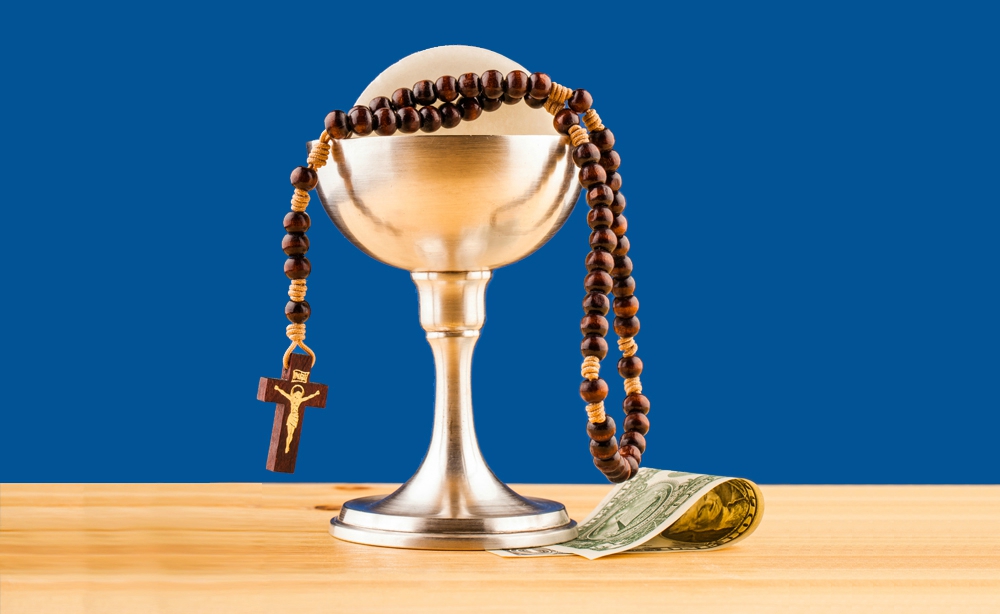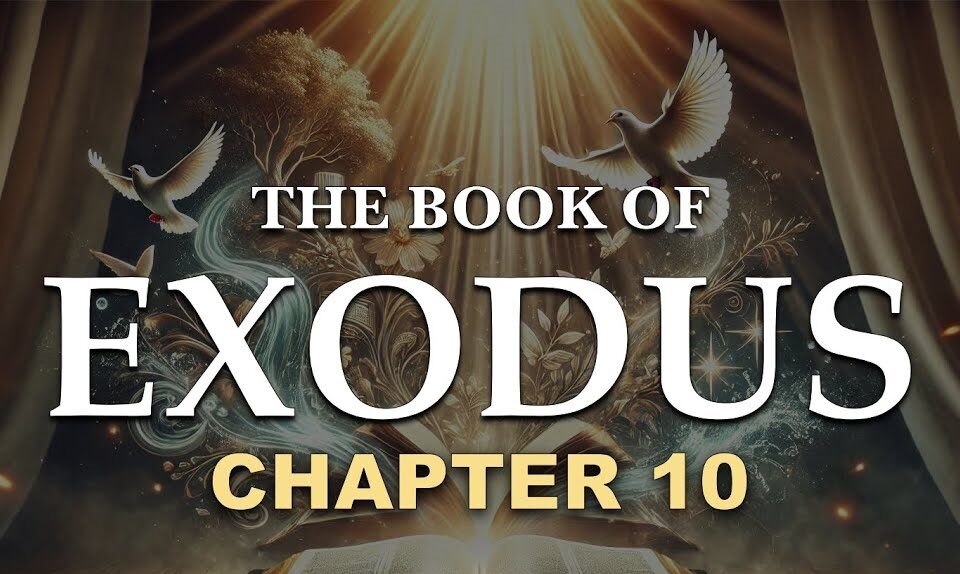Divine Retreat Centre UK – Official Website

Advent – A time of Preparation
November 30, 2023
Is Santa Claus real?
November 30, 2023As the universal church celebrates 2nd November as All Souls day, so also the Vincentians celebrate this day for the departed souls of all priests in the congeration.
A common question I’ve been asked, is why do we pay stipend for holy mass since numerous people want to offer holy masses these days. Even today, many people are not fully aware of the significance behind Mass offerings or stipends.
It was evident from early centuries as a custom and culture that people would pray for the departed souls. This custom was followed even among the Jews. The catacombs where the dead are buried, had inscriptions of the names on the outside, where it was written to pray for the dead.
St. Monica requested her son St. Augustine that she be remembered “at the altar of the Lord, wherever you may be.” She was clearly asking that prayers be offered on her behalf at the celebration of the Eucharist. We should always pray for the departed souls, it is our responsibility and duty to pray for them and offer Holy mass which is beyond time and space and comes from Heaven. We believe that the Mass is a particularly powerful form of prayer and that it can be offered for a particular person or purpose. The power of the Holy Eucharist can go to purgatory and save the people.
Let us read the word of God connected to the souls.
Isaiah 35:8 A highway shall be there, and it shall be called the Holy Way; the unclean shall not travel on it, but it shall be for God’s people; no traveler, not even fools, shall go astray. No lion shall be there, nor shall any ravenous beast come up on it; they shall not be found there, but the redeemed shall walk there.
It’s a prophecy about Christianity, who were called the people of ‘the way’, because Jesus said ‘I am the Way’. So all those who followed ‘the way’ were called ‘people of the way’.
In 1st century India, traced through Jesus’ apostle St. Thomas, the ancient books mention that in South India, Christians were called ‘the people of the way’.
We believe, that even fools shall not go astray. What a promise. What this shows us is that those who are on this way of Holiness, it is impossible for them to lose the way. It is impossible to get lost. It is impossible to go astray. It is so because we walk in the strength of our Lord Jesus Christ. Christian are called to journey down a Highway of Holiness. It starts at the moment of salvation and continues until we one day stand before Him face to face. Any unholiness within us will not take us to Heaven. Those who will go to Heaven are the ones who are perfect and have no uncleaness within them. There may be some people who would have repented for their sins, cleansed their soul through their holy lives, e.g. St. Francis of Assisi, St. Dominic Savio, St. Don Bosco, St. Mother Theresa and so many other saints.
But at the same time, there are other people who have lived a miserable life, we cannot judge them. In front of God they may not be the worst people – for they would have repented and cried before God for their sins. And there are other people who denied God intentionally, with full will and consent and eligible to go to hell. There are also people who aimed to go to Heaven, however because of their weaknesses, surroundings and situations in which they have been brought up, were unable to lead a holy life.
There is a need for purification, we cannot approach God without undergoing some kind of purification. The need for integrity obviously becomes necessary after death, for entering into perfect and complete communion with God. Those who do not possess this integrity must undergo purification.
The one difficulty is that throughout our lives, by our sinfulness, we have wounded ourselves and deepened our selfishness and brokenness. Our sins were forgiven on the cross, something we celebrate in the Sacrament of Reconciliation, but the brokenness still needs to be healed. Some is healed through our life of conversion before our death, but whatever else needs to be healed before we can fully embrace the love of God for all eternity needs to be healed at judgment (we call this purification Purgatory).
Matthew 12:32 Whoever speaks a word against the Son of Man will be forgiven, but whoever speaks against the Holy Spirit will not be forgiven, either in this age or in the age to come.
There is a possibility we may be forgiven here on earth, but there is also a prossibility to be forgiven in the age to come – means another age where forgiveness is possible/granted.
Matthew 12:36 I tell you, on the day of judgment you will have to give an account for every careless word you utter.
Jesus will hold us accountable for our words and actions. For all the careless words we utter, we won’t be going to hell but at the same time we will not be permitted to go to Heaven. But the Bible tells us, ‘we have to give an account’ for every word spoken rashly or carelessly without thought as to whether it is pleasing to the Lord or not. So it’s not about us here being on earth but when we are in the presence of God. ‘Give an account’ means going through a purification process.
For better understanding, do reflect on the bible passage Luke 12:46
When we pray for the departed souls in purgatory, the most important prayer is the celebration of the Eucharist, which is the highest form of worship in the Catholic Church because we unite ourselves with Christ’s sacrifice on the cross in worship of his Father.
Why do we pay for the holy masses/mass stipend? People are not happy that they have to pay for the masses. There are established guidelines by respective Diocesan/Bishop conference who decide the amount regarding the mass offering/stipend to recite the hold mass. Why is this? Is it some kind of bribery?
Let me explain the history as to why we pay the mass stipend? And that will give us understanding into the meaning of it.
In the early Church, after the death of Jesus, the apostles went around to preach the gospel and all those who believed in Jesus, sold all their property and entrusted the amount to the apostles. All of them were living together as one community, one family.
Acts 2:45-46 They would sell their possessions and goods and distribute the proceeds to all, as any had need. Day by day, as they spent much time together in the temple, they broke bread at home and ate their food with glad and generous hearts, praising God and having the goodwill of all the people.
All that they had they sold and lived together, like a centralised government. They would distribute accordingly, as any had need.
It was traditional for the faithful to give the bread and wine used in the celebration of the Holy Eucharist from the very beginning of the Church. Any necessary items, like as the chalice and paten, holy vessels, and the preparation of the altar, were to be brought forward by the people; also, the people were responsible for covering all expenses.
In the old testmant, the best of the produce were first offered to God. From the book of Genesis we read, Cain and Abel offered their produce to God. where Abel’s scarifice was accepted and Cain’s was unaccepted. Traditions followed by the early Jewish people still continues today, where the first fruits of everything belongs to God. There are some who offer their first salary to God.
Any celebration of the Holy Eucharist, is considered as a sacrifice of Jesus on the altar, which took place 2000 years on Mount Calvary and we are partaking in the same sacrifice. Therefore, there should be a contribution of sacrifice from each of us when we partake in the sacrifice of Jesus Christ.
When the priests, who were originally called elders, celebrated Holy Mass in the first century, it was the responsibility of the people to provide everything they needed from home for the celebration. We still honour the tradition of the people bringing the offertory to the altar and the priest accepting it.
Even now, in Africa, people still bring their best crops, fruits, rice, wheat, and other foods as they sing together. Standing in a procession, to offer their produce at the altar, which the priest receives; in front of God, for God.
This is symbolic as it represents one’s own sacrifice to be united with the sacrifice of our Lord Jeses, which is celebrated on the altar. There is a biblical reason why this is needed. We read:
2 Samuel 24:21-24 Araunah said, “Why has my lord the king come to his servant?’ David said, ‘To buy the threshing-floor from you in order to build an altar to the LORD, so that the plague may be averted from the people.” Then Araunah said to David, ‘Let my lord the king take and offer up what seems good to him; here are the oxen for the burnt-offering, and the threshing-sledges and the yokes of the oxen for the wood. All this, O king, Araunah gives to the king.’ And Araunah said to the king, ‘May the LORD your God respond favourably to you.’ But the king said to Araunah, ‘No, but I will buy them from you for a price; I will not offer burnt-offerings to the LORD my God that cost me nothing.’ So David bought the threshing-floor and the oxen for fifty shekels of silver.
In an attempt to stop the plague, David desired to erect an altar to the Lord. This is a biblical way, which is why we are required to pay a little fee—not for the expense of the holy liturgy, but for upkeep.
1 Chronicles 21:17-24 And David said to God, “Was it not I who gave the command to count the people? It is I who have sinned and done very wickedly. But these sheep, what have they done? Let your hand, I pray, O Lord my God, be against me and against my father’s house; but do not let your people be plagued!” Then the angel of the Lord commanded Gad to tell David that he should go up and erect an altar to the Lord on the threshing floor of Ornan the Jebusite. So David went up following Gad’s instructions, which he had spoken in the name of the Lord. Ornan turned and saw the angel; and while his four sons who were with him hid themselves, Ornan continued to thresh wheat. As David came to Ornan, Ornan looked and saw David; he went out from the threshing-floor, and did obeisance to David with his face to the ground. David said to Ornan, “Give me the site of the threshing-floor that I may build on it an altar to the LORD—give it to me at its full price—so that the plague may be averted from the people.” Then Ornan said to David, ‘Take it; and let my lord the king do what seems good to him; see, I present the oxen for burnt-offerings, and the threshing-sledges for the wood, and the wheat for a grain-offering. I give it all.’ But King David said to Ornan, “No; I will buy them for the full price. I will not take for the LORD what is yours, nor offer burnt-offerings that cost me nothing.”
The best way to remove the plague, is to celebrate the Holy Eucharist. Even the passover celebration which was celebrated in the Jersusalem temple, where a sheep should be slained/sacrificed, it is a contribution from the people to give the priest to sacrifice the sheep and then return it back to the people. This is a custom from the old testament and the jewish religion too. Even in the early church, this custom was followed. However, in the later years when the number of people increased, it was not practical for all the people to bring all their offerings to the altar. There will be commotion, disorder, confusion, therefore it was the responsibility of each church to arrange all that was needed for the Holy Liturgy to be celebrated and distributed among the people. Hence, the people started contributing love offerings. That’s how the culture of love offering began.
Brief explanation of why we pay for mass stipend?
Each church/diocese sets a minimum donation for Mass stipends, and donors are asked to cover this amount for expenses. Such offerings are not considered stipends as the faithful are accustomed to Mass being offered for many intentions besides their own. The faithful are free to offer more if they desire, and priests are encouraged to celebrate Mass for the intentions of their faithful even if they are too poor to offer a stipend. In some parishes, if the parishioners didn’t like the priest, they would not take care of the priest and hence they would struggle. The Church came up with the basic maintenance of the ministers, a small amount for the mass celebrated each day. This mass stipend is not the cost of the Holy Mass but is a way of supporting the financial needs of the priest. It is a contribution for the priest’s upkeep and day-to-day living expenses. The sacrifice of the Mass has infinite value. There is a set limit of intentions to be accepted and scheduled at any one time. The Church, however, normally allows only one intention with a stipend united to each Mass. Even, if the priest celebrates many masses, however the priest can retain only one stipend and must dedicate the others to the cause determined by the bishop. A priest cannot gather together several different intentions for which an individual offering has been made and satisfy them with a single Mass. The situation of these cumulative Masses is different from that prevalent in some poor countries in which many people ask the priest to remember them at Mass and often offer a tiny sum as a symbolic contribution. All the priests around the world, their ministry and ministers who are working for the Lord, will be looked after.
Christ’s faithful who make an offering so that Mass can be celebrated for their intention, contribute to the good of the Church, and by that offering they share in the Church’s concern for the support of its priests, ministers and its activities around the world. It is not a source of shame for us to provide mass stipends inside our parishes. I would want to urge everyone to give your church the larger mass stipend than any other place.
Luke 10:7 Remain in the same house, eating and drinking whatever they provide, for the laborer deserves to be paid. Do not move about from house to house.
It is our obligation to provide for the wellbeing of the church and its clergy. Attempting to enlighten all Christians about the necessity and rationale of our widespread stipend is important.
Transcribed by Durriya Alphonso




